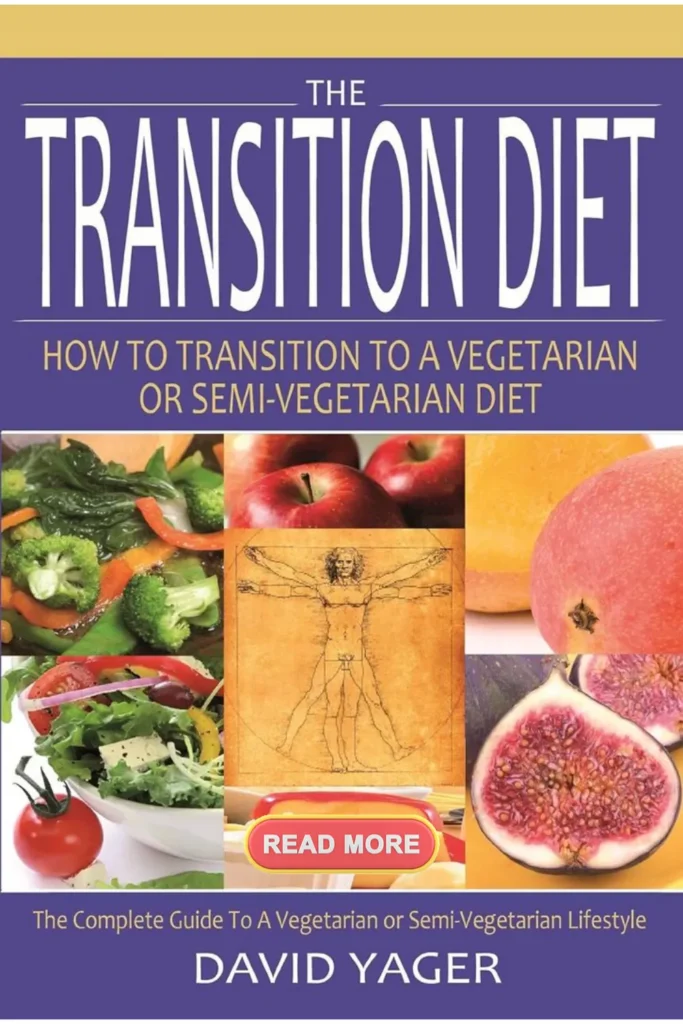Imagine waking up one morning to the aroma of sizzling bacon wafting through the house, only to realize that you’ve committed to a vegetarian lifestyle.
The thought of giving up your favorite meaty indulgences may seem daunting, but transitioning to a plant-based diet doesn’t have to be an uphill battle.
In fact, with the right approach and mindset, you can experience a smooth vegetarian transition that not only satisfies your taste buds but also invigorates your overall well-being.
Embarking on this journey is more than just swapping steaks for salads; it’s about discovering a vibrant new world brimming with diverse flavors and textures.
From hearty lentil soups that warm the soul to zesty vegetable stir-fries bursting with color, going vegetarian opens doors to culinary creativity you never imagined.
With practical tips and insights at your fingertips, you’ll find yourself navigating this path with ease and excitement—turning potential challenges into opportunities for growth and delicious discoveries.
Transitioning to a vegetarian diet can be a significant lifestyle change for many individuals, but with the right approach and guidance, it can be a smooth and rewarding process.
Making the switch to a plant-based diet not only has numerous health benefits, but it also aligns with ethical and environmental concerns.
This article will provide practical tips and strategies to help make your vegetarian transition as seamless as possible.
By incorporating a variety of nutrient-dense foods, planning balanced meals, and seeking out vegetarian-friendly recipes, you can ensure that you are meeting your nutritional needs while enjoying delicious and satisfying meals.
Additionally, we will explore the importance of understanding food labels, sourcing high-quality vegetarian products, and finding support within the vegetarian community.
Whether you are considering a vegetarian diet for health reasons, environmental concerns, or ethical beliefs, this article will serve as a comprehensive guide to help you navigate the transition with confidence and ease.
Embracing a vegetarian lifestyle is a choice that can positively impact your health, the environment, and animals, and we are here to support you every step of the way.
Table of Contents Smooth Vegetarian Transition
Gradually phase out meat consumption
To successfully transition to a more plant-based diet, it can be helpful to gradually reduce your meat consumption while incorporating more plant-based foods into your meals.
Start by incorporating Meatless Mondays into your weekly routine and gradually increase the number of meat-free days.
Experiment with different plant-based protein sources such as legumes, tofu, tempeh, and quinoa to ensure you are still meeting your protein needs.
Additionally, focus on incorporating a variety of fruits, vegetables, whole grains, and nuts into your diet to ensure you are receiving a well-rounded nutritional intake.
Making small, sustainable changes over time can help make the transition to a more plant-based diet smoother and more manageable.
Experiment with plant-based recipes
When exploring plant-based recipes, consider utilizing a diverse range of herbs and spices to enhance the flavors of your meals.
Experimenting with aromatic herbs like basil, cilantro, and mint can add freshness and depth to your dishes, while spices such as cumin, turmeric, and paprika can provide warmth and complexity.
Don’t hesitate to try out different cooking methods such as roasting, grilling, or stir-frying to bring out the natural flavors of plant-based ingredients.
By incorporating a variety of herbs, spices, and cooking techniques into your plant-based recipes, you can create delicious and satisfying meals that will make your vegetarian transition even more enjoyable.
Incorporate more fruits and vegetables
To further enhance the nutritional value of your vegetarian diet, it is essential to incorporate a wide variety of fruits and vegetables into your daily meals.
Fruits and vegetables are rich in essential vitamins, minerals, fiber, and antioxidants, which are vital for maintaining optimal health and well-being.
Including a colorful array of fruits and vegetables not only adds vibrant flavors and textures to your dishes but also ensures a well-rounded and balanced diet.
Aim to include different types of fruits and vegetables in various forms – whether fresh, frozen, or dried – to enjoy the diverse benefits they offer and to create a wholesome and nutritious vegetarian eating routine.
Learn about plant-based protein sources
To ensure you meet your daily protein needs on a plant-based diet, it is crucial to familiarize yourself with various plant-based protein sources.
Legumes such as lentils, chickpeas, and black beans are excellent sources of protein and can be incorporated into salads, soups, or wraps for a hearty and nutritious meal.
Tofu and tempeh, derived from soybeans, are versatile meat substitutes rich in protein.
Nuts and seeds like almonds, chia seeds, and pumpkin seeds are great for snacking or adding crunch to salads and stir-fries while providing essential nutrients.
Additionally, quinoa, a complete protein source, can be used as a base for grain bowls or as a side dish to complement your meals, ensuring you maintain a balanced and fulfilling plant-based diet.
Plan balanced vegetarian meals daily
When planning your daily vegetarian meals, allocate a variety of foods to ensure you receive essential nutrients.
Incorporate a rainbow of fruits and vegetables to provide a wide range of vitamins, minerals, and antioxidants.
Include whole grains like brown rice, quinoa, or whole wheat bread for fiber and sustained energy levels.
Don’t forget healthy fats from sources such as avocados, olive oil, and nuts, which are crucial for brain health and overall well-being.
By diversifying your meals with different food groups, you can ensure a balanced and nutritionally sound plant-based diet.
Seek advice from nutritionists
Consulting with a registered dietitian or nutritionist can be immensely beneficial when making dietary changes, especially when transitioning to a vegetarian lifestyle.
These professionals have the expertise to assess your dietary needs and provide personalized recommendations to ensure you meet all your nutritional requirements.
By seeking guidance from a nutritionist, you can receive tailored advice on meal planning, supplementation, and optimizing your diet to support your health goals.
Nutritionists can help you navigate potential nutrient gaps that may arise from eliminating certain food groups and offer strategies to maintain a well-rounded and nutrient-rich vegetarian diet.
Their support can enhance your transition to a vegetarian lifestyle and help you thrive on a plant-based eating plan.
Make informed choices with substitutes
When considering dietary substitutes in your vegetarian journey, it is essential to make informed choices that align with your nutritional needs.
This involves researching and understanding the nutritional content of various plant-based alternatives to ensure they provide adequate protein, vitamins, and minerals.
Opting for whole food substitutes like lentils, beans, tofu, and nuts can be excellent sources of protein and essential nutrients.
Additionally, exploring fortified products such as fortified plant-based milk and cereals can help meet specific nutrient requirements.
By incorporating a diverse range of substitutes and paying attention to nutritional values, you can create a well-balanced vegetarian diet that supports your overall health and well-being.
Embrace the benefits of vegetarianism
Transitioning to a vegetarian lifestyle comes with a plethora of benefits that can positively impact both your health and the environment.
By adopting a plant-based diet rich in fruits, vegetables, and whole grains, you can significantly reduce the risk of chronic diseases such as heart disease, diabetes, and certain cancers.
Vegetarianism also promotes weight management and can enhance overall vitality and energy levels.
Furthermore, embracing a vegetarian diet contributes to sustainability by reducing greenhouse gas emissions, conserving water resources, and decreasing deforestation associated with animal agriculture.
Making the conscious choice to embrace vegetarianism not only nurtures your well-being but also plays a role in creating a more sustainable future for the planet.
In conclusion, embarking on a journey towards a vegetarian lifestyle can be a rewarding and enriching experience for both personal well-being and the environment.
The transition to a vegetarian diet may seem daunting at first, but with careful planning, education, and a positive mindset, it can be a smooth and sustainable change.
Remember to listen to your body, experiment with diverse plant-based foods, seek support from communities or resources, and approach the process with patience and self-compassion.
This shift towards a vegetarian lifestyle not only promotes a healthier you but also contributes to a greener, more sustainable world.
By making conscious and informed choices, you are not only nourishing yourself but also the planet we all call home.
FAQ
What are some key tips for transitioning to a vegetarian diet smoothly and successfully?
To transition smoothly to a vegetarian diet, start by gradually reducing meat intake while incorporating plant-based proteins like beans and lentils.
Experiment with new recipes and explore a variety of fruits and vegetables to ensure a balanced diet.
Educate yourself on nutrition to meet dietary needs, consider supplements for nutrients like B12, and stay hydrated.
Find support from vegetarian communities or online resources, and be patient with yourself during the transition.
Listen to your body and make adjustments as needed to make the switch successfully.
How can someone ensure they are getting enough protein and nutrients in their diet during the transition to vegetarianism?
To ensure adequate protein and nutrient intake during the transition to vegetarianism, individuals should focus on incorporating a variety of plant-based protein sources such as legumes, tofu, tempeh, nuts, seeds, and whole grains into their meals.
Additionally, consuming a diverse range of fruits, vegetables, and fortified foods can help meet nutrient needs.
It’s also beneficial to consider consulting a dietitian or nutritionist to ensure a balanced vegetarian diet that provides all essential nutrients.
Adequate meal planning and supplementation, if needed, can also help maintain optimal nutrient levels during the transition.
What are some common challenges people face when transitioning to a vegetarian diet, and how can they be overcome?
Some common challenges people face when transitioning to a vegetarian diet include cravings for meat, concerns about getting enough protein and nutrients, and social pressure.
These challenges can be overcome by gradually reducing meat intake, exploring new plant-based protein sources like legumes and tofu, educating oneself about balanced vegetarian nutrition, and finding support from like-minded individuals or groups.
Experimenting with different recipes and being open to trying new foods can also help make the transition smoother and more enjoyable.
Are there any specific meal planning strategies or resources that can help with a smooth transition to a vegetarian diet?
There are several meal planning strategies and resources that can help with transitioning to a vegetarian diet, such as gradually introducing plant-based meals, researching new recipes, using meal planning apps or websites, joining online vegetarian communities for support and guidance, incorporating a variety of vegetables, fruits, whole grains, and plant-based protein sources, and experimenting with different cooking techniques and flavors to keep meals interesting and satisfying.
Planning ahead, being open to trying new foods, and seeking inspiration from vegetarian cookbooks or blogs can make the transition smoother and more enjoyable.
How can someone navigate social situations and dining out while transitioning to a vegetarian lifestyle?
When transitioning to a vegetarian lifestyle, it’s essential to communicate your dietary preferences clearly and politely in social situations and while dining out.
Researching vegetarian-friendly restaurants or requesting vegetarian options in advance can help make the experience smoother.
Explaining your choice to others, being open to trying new dishes, and bringing a vegetarian dish to share can also help navigate social situations.
Additionally, learning to read menus carefully, asking questions about ingredients, and being flexible with menu modifications are useful strategies for dining out as a vegetarian.
With patience and adaptability, the transition can be enjoyable and satisfying.

